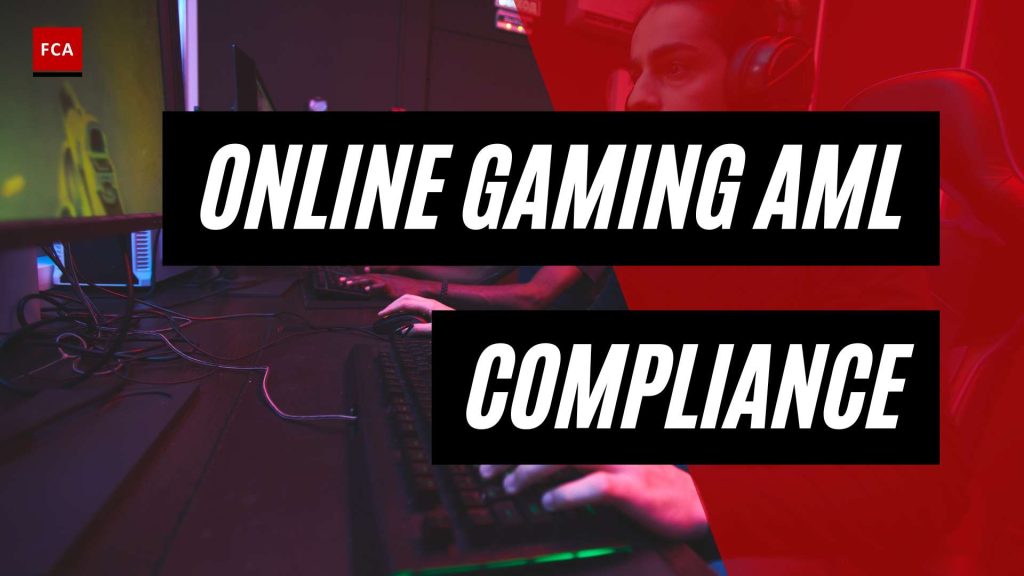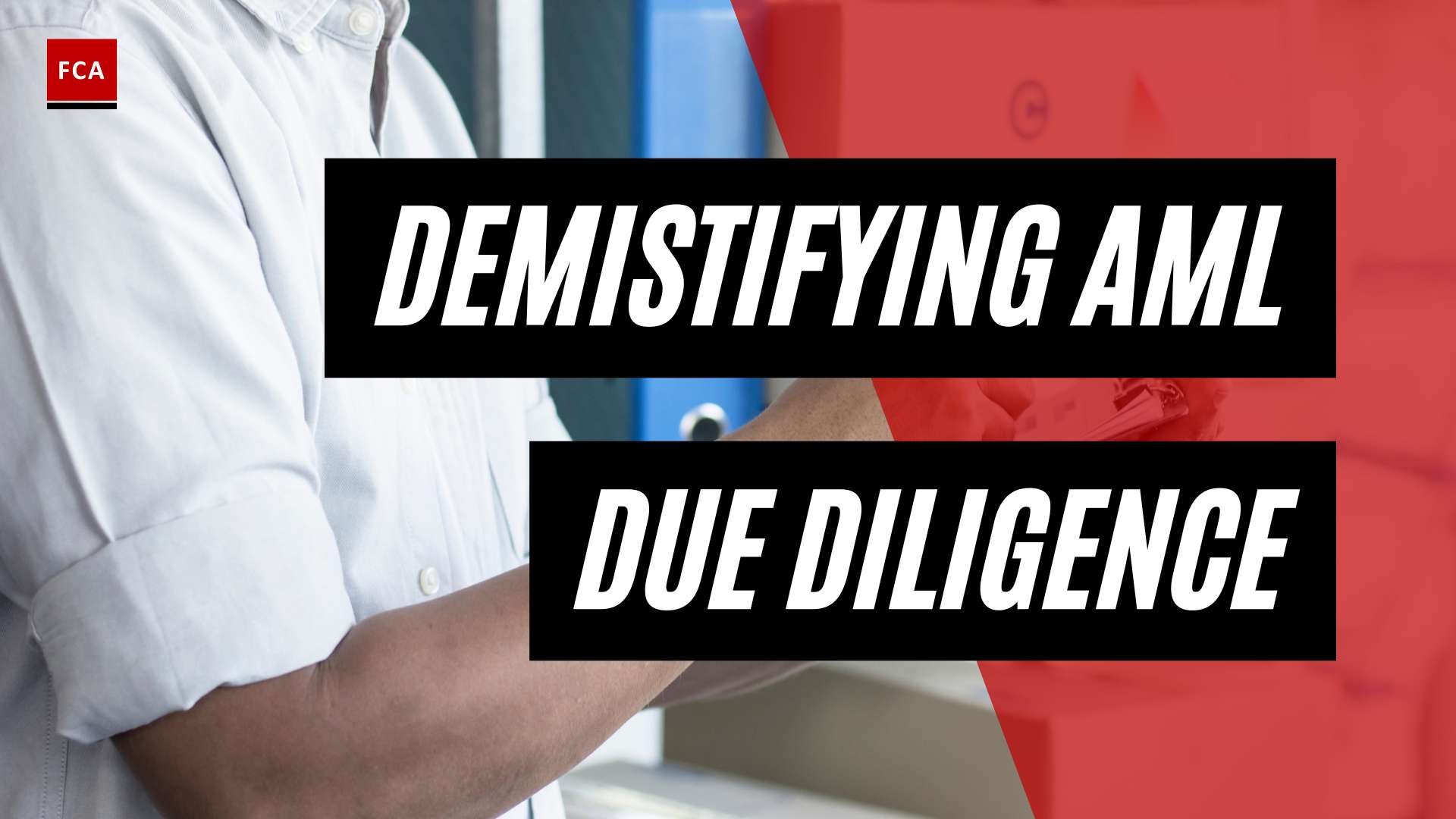AML Regulation in the Gaming Industry
The online gaming industry has become a target for money launderers due to its large transaction volume and the ability to conduct transactions online, providing anonymity and concealment (Alessa). Money launderers exploit the fast-paced nature of online gaming and the ease of transferring funds across borders without detection (Alessa). Recognizing the risks associated with money laundering in the gaming sector, regulatory bodies worldwide have shifted their focus towards enhancing anti-money laundering (AML) compliance efforts within the industry.
Understanding Money Laundering in Online Gaming
Money laundering in the online gaming industry involves the process of concealing the origins of illicit funds by integrating them into the legitimate flow of gaming revenue. This is achieved through the high volume of transactions and the ability to transfer funds quickly across borders, making it challenging to detect and prevent money laundering activities. Money launderers exploit the digital nature of online gaming and the vast amount of funds circulating within the industry to “clean” their illegal proceeds.
Regulatory Focus on AML Compliance in Online Gaming
Given the growing popularity of online gaming and the increase in digital transactions, regulatory bodies have intensified their efforts to ensure AML compliance within the industry. These bodies, such as the Financial Action Task Force (FATF), have issued guidelines and recommendations to strengthen AML compliance in online gaming. Operators are urged to adopt risk-based approaches and comprehensive AML programs to effectively combat money laundering and terrorist financing activities (Alessa).
The rapid growth of the online gaming industry, which is projected to reach a value of $300 billion by 2025, has made it an attractive target for money launderers (Youverify). To address this, AML compliance measures have become a crucial aspect of the gaming industry’s operations. These measures include robust customer due diligence (CDD), transaction monitoring systems, and suspicious activity reporting mechanisms.
By implementing stringent AML compliance measures, the gaming industry can protect itself from financial and reputational risks associated with money laundering. Furthermore, these measures contribute to a safer and more secure gaming environment for legitimate users (Youverify).
As the regulatory landscape continues to evolve, gaming companies must stay abreast of AML regulations and make necessary adjustments to their compliance programs to meet regulatory requirements and avoid penalties. It is paramount for the gaming industry to prioritize AML compliance to maintain the integrity of the sector and protect against illicit financial activities.
AML Compliance Measures in Online Gaming
To combat the risk of money laundering in the online gaming industry, robust anti-money laundering (AML) compliance measures are essential. Implementing effective measures such as customer due diligence (CDD), transaction monitoring systems, and suspicious activity reporting can help detect and prevent illicit financial activities.
Customer Due Diligence (CDD) in Online Gaming
Customer due diligence is a critical component of AML compliance in online gaming. It involves verifying the identity of customers and assessing the potential risk they pose for money laundering activities. Online gaming operators should establish stringent KYC (Know Your Customer) procedures to gather accurate and reliable information about their customers.
By conducting thorough CDD checks, operators can identify high-risk customers and take appropriate measures to mitigate the associated risks. This may include enhanced due diligence procedures for high-risk customers to ensure compliance with AML regulations. The utilization of advanced identity verification solutions can streamline the CDD process and enhance the efficacy of AML compliance efforts.
Transaction Monitoring Systems in Online Gaming
Transaction monitoring systems play a crucial role in detecting suspicious financial activities. These systems analyze customer transactions in real-time, looking for patterns and anomalies that may indicate potential money laundering. By setting predefined rules and thresholds, operators can automatically flag transactions that deviate from expected patterns.
Implementing robust transaction monitoring systems enables online gaming operators to identify and investigate potentially suspicious activities promptly. This proactive approach helps prevent money laundering and ensures compliance with AML regulations. By leveraging advanced technologies and machine learning algorithms, transaction monitoring systems can continuously evolve to stay ahead of emerging money laundering techniques.
Suspicious Activity Reporting in Online Gaming
Prompt reporting of suspicious activities is a vital aspect of AML compliance in the online gaming industry. Operators should establish clear procedures for reporting and escalate any suspicious transactions or activities to the relevant authorities. These reports provide law enforcement agencies with valuable information to investigate and prevent money laundering activities.
By fostering a culture of vigilance among employees and providing comprehensive training on recognizing red flags and suspicious behavior, online gaming operators can enhance their ability to identify and report potential money laundering activities. Collaboration with regulatory authorities and sharing information within the industry can further strengthen the collective efforts to combat financial crime.
By implementing robust customer due diligence processes, utilizing effective transaction monitoring systems, and promoting a culture of suspicious activity reporting, online gaming operators can stay ahead of the game in AML compliance. These measures contribute to the protection of the gaming industry from financial crime and help ensure a safe and secure gaming environment for all stakeholders involved.
AML Red Flags in Online Gaming
To effectively combat money laundering and illicit financial activity in the online gaming industry, it is crucial to be aware of the red flags that may indicate suspicious behavior. By recognizing these warning signs, gaming operators can enhance their anti-money laundering (AML) compliance efforts and protect the integrity of their platforms.
Red Flags for Money Laundering in Online Gaming
Money launderers often exploit the online gaming sector due to its large transaction volumes and the potential for anonymity and concealment that online platforms offer. To identify potential money laundering activities, gaming operators should be vigilant for the following red flags:
-
Rapid and Large Transactions: Unusually high-value or frequent transactions, particularly when they involve rapid deposits, withdrawals, or transfers, can be indicators of money laundering attempts. These transactions may involve multiple accounts and could be an attempt to obscure the source or destination of funds.
-
Structuring Transactions: Money launderers may engage in structuring transactions, also known as smurfing, to avoid reporting thresholds by making multiple small transactions instead of one large transaction. This pattern may be observed in deposits, withdrawals, or bets made within a short period.
-
Use of Multiple Accounts: The use of multiple accounts by a customer, especially if the accounts are associated with different identities or locations, can indicate an attempt to obfuscate the origin or destination of funds. This practice may be used to circumvent transaction monitoring systems.
-
Frequent Conversion of Currencies: Frequent and rapid conversion of funds between different currencies, especially those associated with high-risk jurisdictions, may indicate an attempt to disguise the origins of illicit funds or create complexity in tracing the money flow.
For a comprehensive list of red flags related to money laundering in the gaming industry, gaming operators should refer to guidance provided by regulatory bodies and industry experts.
Red Flags for Illicit Financial Activity in Online Gaming
In addition to money laundering, online gaming platforms may be vulnerable to other forms of illicit financial activity. Gaming operators should be alert for the following red flags that may indicate such activities:
-
Unusual Betting Patterns: Anomalies in betting patterns, such as consistently placing large bets followed by sudden changes in betting behavior, can raise suspicions of match-fixing or illegal gambling activities. Operators should monitor for unusual betting behavior that deviates significantly from normal patterns.
-
Use of Virtual Currencies: The use of virtual currencies, such as cryptocurrencies, within online gaming platforms can introduce additional risks. Operators should closely monitor transactions involving virtual currencies, as they can be used to facilitate money laundering, hide illicit proceeds, or bypass traditional financial systems.
-
Collusion and Chip Dumping: Collusion between players or chip dumping, where one player purposefully loses chips to another player, can be signs of fraudulent activities or attempts to launder money. Unusual patterns of gameplay or suspicious player interactions should be thoroughly investigated.
-
Third-Party Payments: Payments made through third-party accounts, particularly those with no apparent connection to the gaming activity, could indicate attempts to launder funds or disguise the true source of the money. Operators should scrutinize transactions involving third-party payment processors or unrelated entities.
By remaining vigilant and implementing robust monitoring systems, gaming operators can identify and act upon these red flags, minimizing the risk of money laundering and illicit financial activity within their platforms. It is essential for operators to stay up to date with regulatory guidelines and best practices to ensure effective AML compliance in the gaming industry.
Regulatory Guidelines for AML Compliance in Online Gaming
To ensure effective anti-money laundering (AML) compliance in the online gaming industry, regulatory bodies and organizations have established guidelines and regulations. These guidelines provide a framework for online gaming operators to implement robust AML measures and combat money laundering and terrorist financing activities. Two key sources of regulatory guidelines in the field of AML compliance for online gaming are the Financial Action Task Force (FATF) and jurisdiction-specific regulations.
Financial Action Task Force (FATF) Guidelines for Online Gaming
The Financial Action Task Force (FATF) is an international organization that sets global standards for combating money laundering, terrorist financing, and other related threats. The FATF has issued guidelines specifically targeting the online gaming sector, urging operators to adopt risk-based approaches and comprehensive AML programs.
The FATF revised its Recommendations in 2009 to enhance AML obligations for the gaming and gambling industry. These recommendations highlight the need for online gaming operators to implement stringent AML measures to prevent financial crimes. By following the FATF guidelines, operators can establish effective customer due diligence processes, implement transaction monitoring systems, and enhance their suspicious activity reporting mechanisms.
Online gaming operators should refer to the FATF’s guidelines for a comprehensive understanding of the AML requirements specific to their industry. Compliance with these guidelines not only helps protect the gaming industry from financial crime but also ensures a safe and secure gaming environment for players.
AML Regulations in Different Jurisdictions for Online Gaming
In addition to the FATF guidelines, various jurisdictions have implemented their own AML regulations specific to the online gaming industry. These regulations outline the obligations and requirements that online gaming operators must fulfill to comply with AML laws within their respective jurisdictions.
The specific regulations and requirements may vary from one jurisdiction to another. For example, the United States has its own set of AML regulations for the gaming industry, which includes reporting suspicious transactions and implementing customer due diligence measures (AML Regulations for Casinos). Similarly, the United Kingdom, the European Union, Australia, and Asian countries have their own AML regulations that apply to the gaming industry.
To ensure compliance with AML regulations, online gaming operators must familiarize themselves with the specific requirements within their jurisdiction. This includes understanding the reporting obligations, record-keeping requirements, and obligations related to enhanced due diligence for high-risk customers.
By adhering to both the FATF guidelines and jurisdiction-specific AML regulations, online gaming operators can establish robust AML compliance programs and contribute to the integrity and security of the gaming industry.
It is essential for operators to stay updated with regulatory guidelines and adjust their AML compliance practices accordingly. Failure to comply with AML regulations can lead to severe legal and financial consequences, including hefty fines and reputational damage. Therefore, online gaming operators should prioritize AML compliance and implement proactive measures to prevent money laundering and other financial crimes within their platforms.
Importance of AML Compliance in Online Gaming
Ensuring strong anti-money laundering (AML) compliance in the online gaming industry is of paramount importance. This compliance not only protects gaming companies from financial and reputational risks associated with money laundering but also contributes to a safer and more secure gaming environment for legitimate users.
Protecting the Gaming Industry from Financial Crime
The online gaming industry has become an attractive target for money launderers due to its high transaction volume and the ability to conduct most activities online, providing anonymity and concealment. Money launderers leverage the fast-paced nature of online gaming and the ease of transferring funds across borders to “clean” their illegal proceeds without detection (Alessa).
To combat this threat, robust AML compliance measures are necessary. Implementing effective customer due diligence (CDD) procedures, transaction monitoring systems, and suspicious activity reporting mechanisms can help detect and prevent money laundering activities within the online gaming sector. By adhering to rigorous AML regulations, gaming companies can create a strong deterrent against financial crime, protecting the industry as a whole.
Ensuring a Safe and Secure Gaming Environment
The rise of online gaming, coupled with the increasing popularity of digital transactions, has made the gaming industry a prime target for money laundering activities. With the global gambling market worth billions of dollars, it is essential to implement robust AML compliance measures to safeguard the integrity of the industry.
By establishing comprehensive AML programs and adopting risk-based approaches, gaming operators can create a secure environment for their customers. These measures include conducting thorough Know Your Customer (KYC) checks, implementing transaction monitoring systems, and promptly reporting any suspicious activities to the relevant authorities (Youverify). This proactive stance helps to prevent money laundering, terrorist financing, and other illicit financial activities within the gaming industry.
Furthermore, regulatory bodies such as the Financial Action Task Force (FATF) have issued guidelines and recommendations to strengthen AML compliance in the online gaming sector. These guidelines emphasize the importance of risk-based approaches and comprehensive AML programs in combating money laundering and terrorist financing activities (Alessa).
By prioritizing AML compliance, the gaming industry can protect its reputation, maintain the trust of its customers, and contribute to a secure and transparent gaming environment. The implementation of advanced technologies such as artificial intelligence and machine learning can further enhance AML compliance efforts, enabling the detection and prevention of money laundering activities in real-time.
In conclusion, AML compliance plays a vital role in safeguarding the online gaming industry. By implementing stringent AML measures, gaming companies can protect themselves from financial crime, ensure the integrity of their operations, and create a safe and enjoyable gaming experience for their customers.
Enhanced Due Diligence (EDD) for High-Risk Customers
In the gambling industry, enhanced due diligence (EDD) has emerged as a more stringent process than conventional due diligence (CDD) for high-risk customers. This approach requires a deeper understanding of the source of funds, nature of transactions, and gambling habits to mitigate the risks associated with potential financial crimes. Banks and financial institutions working with gambling firms must implement tightened anti-money laundering (AML) procedures to protect their reputation, ensure regulatory compliance, maintain financial stability, and effectively manage risks associated with potential financial crimes (LinkedIn).
Deeper Understanding of High-Risk Customers in the Gambling Industry
When it comes to high-risk customers in the gambling industry, EDD involves going beyond standard customer due diligence procedures. It requires a comprehensive assessment of various factors to gain a deeper understanding of these customers. This includes:
- Source of Funds: EDD entails thoroughly examining the source of funds used by high-risk customers for gambling activities. This involves verifying the legitimacy of the funds and ensuring they are derived from legal sources.
- Nature of Transactions: Understanding the nature of transactions conducted by high-risk customers is essential to identify any suspicious activities. Analyzing the frequency, size, and patterns of their transactions helps detect potential money laundering or illicit financial activities.
- Gambling Habits: EDD requires a close examination of the gambling habits of high-risk customers. This includes assessing the consistency of their betting patterns, the types of bets placed, and any sudden changes in behavior that may indicate potential financial crimes.
By gaining a deeper understanding of high-risk customers in the gambling industry, operators and financial institutions can effectively identify and mitigate the risks associated with money laundering and other financial crimes. This allows them to maintain the integrity of their operations while safeguarding their reputation and complying with AML regulations.
Stringent AML Procedures for High-Risk Customers
To address the risks posed by high-risk customers, stringent AML procedures are necessary. These procedures aim to ensure that appropriate measures are in place to prevent money laundering and other illicit financial activities. Some key components of AML procedures for high-risk customers in the gambling industry include:
- Enhanced Monitoring: Implementing enhanced monitoring systems is crucial to detect and track the financial activities of high-risk customers. This involves using advanced transaction monitoring tools that can identify suspicious patterns, unusual behavior, and large transactions.
- Ongoing Due Diligence: High-risk customers require continuous monitoring and ongoing due diligence to assess any changes in their risk profile. This includes regularly updating customer information, conducting periodic reviews, and reassessing the risk level associated with each customer.
- Internal Controls and Reporting: Implementing robust internal controls and reporting mechanisms is vital for effective AML compliance. This includes establishing procedures for reporting suspicious activities, training employees to identify red flags, and maintaining comprehensive records of customer interactions.
By implementing these stringent AML procedures, operators in the gambling industry can effectively manage the risks associated with high-risk customers. It allows them to meet their AML obligations, protect their operations from financial crimes, and contribute to a safe and secure gambling environment.
For more information on AML compliance in the gaming industry, you can refer to our articles on aml regulations for casinos, gaming industry aml policies, and aml regulations in gaming industry.
AML Regulations and Compliance Oversight
To ensure the integrity of the gaming industry and prevent money laundering, various countries have established Anti-Money Laundering (AML) regulations specifically tailored to the gaming industry. Let’s take a closer look at the AML regulations in the United States, the United Kingdom, the European Union, Australia, and various countries in Asia.
AML Regulations in the United States for the Gaming Industry
In the United States, AML regulations for the gaming industry fall under the purview of the Financial Crimes Enforcement Network (FinCEN). FinCEN delegates its compliance review authority to the Internal Revenue Service (IRS) to ensure compliance with the Bank Secrecy Act (BSA) and anti-money laundering regulations. Casinos are subject to scrutiny to detect BSA violations, and if significant violations are found, investigations are initiated, which can result in administrative penalties on the casino (Sanction Scanner).
AML Regulations in the United Kingdom for the Gaming Industry
In the United Kingdom, the gaming and gambling industry is regulated by the UK Gambling Commission (UKGC). The UKGC oversees all aspects of the industry, including preventing money laundering and terrorist financing. The Money Laundering, Terrorist Financing, and Transfer of Funds (Information on the Payer) Regulations 2017 (MLR 2017) require gaming and gambling companies to conduct risk assessments to identify and mitigate money laundering and terrorist financing risks. The UKGC has issued specific guidance on AML requirements, such as customer due diligence.
AML Regulations in the European Union for the Gaming Industry
The European Union (EU) introduced the Fifth Anti-Money Laundering Directive (5AMLD) in 2018, which includes provisions for the gaming and gambling industry. Under the 5AMLD, gaming and gambling companies are obligated to implement Customer Due Diligence (CDD) and Enhanced Due Diligence (EDD) for high-risk customers, monitor and report suspicious transactions to authorities, and appoint a designated AML officer to oversee compliance with AML regulations. The 5AMLD aims to harmonize AML regulations across EU member states.
AML Regulations in Australia for the Gaming Industry
Australia’s gaming and gambling industry is regulated by AUSTRAC under the Anti-Money Laundering and Counter-Terrorism Financing (AML/CTF) Act published in 2006. Gambling businesses in Australia have reporting obligations, record-keeping requirements, and are mandated to implement AML/CTF programs. The industry is subject to strict regulatory requirements, with measures aimed at reducing the risks of money laundering (Sanction Scanner).
AML Regulations in Asian Countries for the Gaming Industry
In Asia, different countries have varying AML regulations for the gaming and gambling industry. For example:
- China: The Ministry of Public Security oversees AML regulations for casinos.
- Japan: Strict identification and verification requirements are in place.
- South Korea: A risk-based approach is applied, focusing on high-risk customers.
- Singapore: A comprehensive AML framework is established, including enhanced due diligence for politically exposed persons.
Each country in Asia has its own set of regulations to combat money laundering in the gaming industry, reflecting their unique legal and regulatory landscapes.
Compliance with AML regulations is crucial for the gaming industry to prevent illicit financial activities and maintain the integrity of the sector. Gaming operators must stay abreast of the specific AML obligations in their respective jurisdictions and implement robust AML compliance programs to mitigate the risks associated with money laundering. By adhering to these regulations, the gaming industry can contribute to a safer and more secure environment for all stakeholders involved.
Importance of KYC Compliance in the Gaming Industry
When it comes to combating financial crime in the gaming industry, KYC compliance (Know Your Customer) serves as a crucial line of defense. KYC procedures play a pivotal role in preventing fraud and ensuring the integrity of transactions within the gaming industry. By verifying the identity of customers and assessing their risk profiles, gaming operators can establish a robust framework to protect themselves and their customers from illicit activities.
KYC Procedures for Preventing Fraud in the Gaming Industry
KYC procedures in the gaming industry involve collecting and verifying customer information to ensure compliance with AML regulations. By implementing these procedures, gaming operators can effectively identify and mitigate the risk of money laundering, terrorist financing, and other financial crimes.
The specific KYC requirements may vary by jurisdiction, but there are fundamental elements that are generally expected to be met. These elements include:
-
Verification of customer identity: Gaming operators are required to verify the identity of their customers by collecting valid identification documents, such as passports or driver’s licenses. This helps to ensure that individuals participating in gambling activities are who they claim to be.
-
Screening against watchlists: Operators must screen customer information against global watchlists and sanction lists to identify any individuals or entities involved in illegal activities. This helps to prevent engaging with high-risk individuals and entities.
-
Enhanced Due Diligence (EDD) for high-risk customers: For customers who pose a higher risk, such as those with large transactions or politically exposed persons (PEPs), enhanced due diligence measures should be implemented. This includes gathering additional information and conducting more thorough background checks.
-
Ongoing monitoring: Gaming operators should establish systems to monitor customer transactions and behavior for any suspicious activities. This allows them to detect and report any unusual patterns or transactions that may indicate potential money laundering or fraudulent activities.
By adhering to these KYC procedures, gaming operators can create a safer and more secure environment for their customers while complying with AML obligations set forth by regulatory authorities.
Consequences of Non-Compliance with KYC Regulations in the Gaming Industry
Non-compliance with KYC regulations in the gaming industry can have severe consequences for gaming operators. Regulatory authorities are increasingly focusing on ensuring robust AML compliance in the gaming sector to combat financial crime and protect the integrity of the industry.
The consequences of non-compliance may include:
-
Regulatory penalties: Gaming operators may face significant fines and penalties for failing to implement adequate KYC procedures. These penalties can vary depending on the jurisdiction and the severity of the non-compliance.
-
Reputational damage: Non-compliance with KYC regulations can result in reputational damage for gaming operators. Negative publicity and loss of customer trust can have long-lasting effects on the business and its ability to attract and retain customers.
-
Legal implications: In some cases, non-compliance with KYC regulations can lead to legal actions and criminal charges. This can result in further financial and legal repercussions for gaming operators.
To avoid these consequences, gaming operators must prioritize KYC compliance and establish robust systems and processes to ensure the thorough verification of customer identities and the detection of any suspicious activities.
In conclusion, KYC compliance is of utmost importance in the gaming industry to prevent fraud, protect the industry from financial crime, and maintain a safe and secure environment for all participants. By implementing effective KYC procedures and staying up-to-date with AML regulations, gaming operators can contribute to the integrity and sustainability of the gaming industry as a whole.








